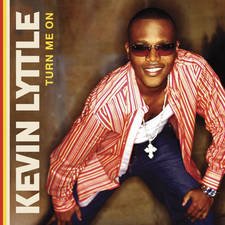Lottery Con Man Is Spared Prison
Imran Pervais, 26, misled the winning group into thinking they had won £10 when in fact they had scooped £79,887 after matching five balls and the bonus ball.
He was convicted by a jury in March of fraud by false representation following a two-day trial.
At Maidstone Crown Court, Judge David Griffiths-Jones QC sentenced him to 12 months jail, suspended for two years, as he described the offence as "opportunistic'' and "mean-spirited''.
He said Pervais, of Milton Road, Gravesend, Kent, had abused the trust placed in him by the victim, Callum Crosier and his work syndicate, to try to pocket the lottery winnings himself.
The judge said that Pervais' offence "derived from an impulsive decision'' on his part but he ultimately failed to deprived the syndicate of their winnings.
Pervais was working at the family shop, Moores Convenience Store in Mackenzie Way, Gravesend, on May 18 when Mr Crosier walked in to check four lottery tickets he had bought the week before.
Mr Crosier, who puts on 28 lines a week as part of a work syndicate, was told by Pervais that one of the tickets had registered a £10 win.
As another winning slip was being printed, the victim said: "What's that? Another tenner?'' Pervais was said to have replied: "Yes.''
Using the £20 won in total and adding a further £8, Mr Crosier then bought another 28 lines for the next lottery draw - not realising he had fallen victim to fraud.
It was only when he returned to work and checked the numbers that he realised one of the lines had in fact matched five numbers, which would earn a prize of £1,000.
He then went back to the store and informed Pervais, who told him to return in a couple of hours so he could check the shop for the ticket.
In the meantime, the court heard the victim checked the numbers again and realised that in fact the bonus ball on that line had also been matched, triggering a near £80,000 windfall.
He went back to tell Pervais and demanded to be shown the ticket. He was given a number of bin bags to search through before being invited to look behind the counter.
Some wooden plinths were removed from the back of the counter, revealing a number of pink winning slips and a screwed-up lottery ticket - Mr Crosier's winning ticket.
Camelot launched an investigation and found that all four tickets had been scanned, including the one with the substantial winning prize. Pervais was arrested on June 15.
Pervais' crime was intended to deprive the syndicate of the "romantic joy'' of a lottery win.
Judge Griffiths-Jones ordered Pervais to complete 200 hours of unpaid work within the next 12 months and placed him under a 7pm to 6am curfew for four months.
The judge said: "That the win was in excess of £50,000 would have been apparent to you as you processed the tickets, or at least that a substantial win would have been apparent to you, but you told Mr Crosier that he had won £10.
"No doubt planning to wait in the hope that he would be content and would accept this small sum, perhaps even be glad of it, so that when you could see that there would be no repercussions you would be able to claim the prize for yourself.
"The offence, whilst opportunistic, was, as it seems to me, especially mean-spirited.
"It was intended to deprive Mr Crosier and his syndicate of a substantial sum of money and in the process deprive them of the romantic joy which the win would have represented for them.''
The judge said that the syndicate and Camelot relied upon Pervais' "honesty and integrity'' which he betrayed.
His defence counsel John Fitzgerald said the family business has suffered as the lottery franchise has since been withdrawn from the shop.
He said: "It has devastated the profits of the family business. Having a lottery franchise in one sense brings in a stream of income and their franchise has been taken away, along with a steady stream of customers and the household's income.
"The strain on the family dynamic has been huge.''
Pervais, who has no previous convictions, remained in "substantial denial'' about his offence, the judge said.
Mr Fitzgerald said that no money was ultimately taken from the winners.


